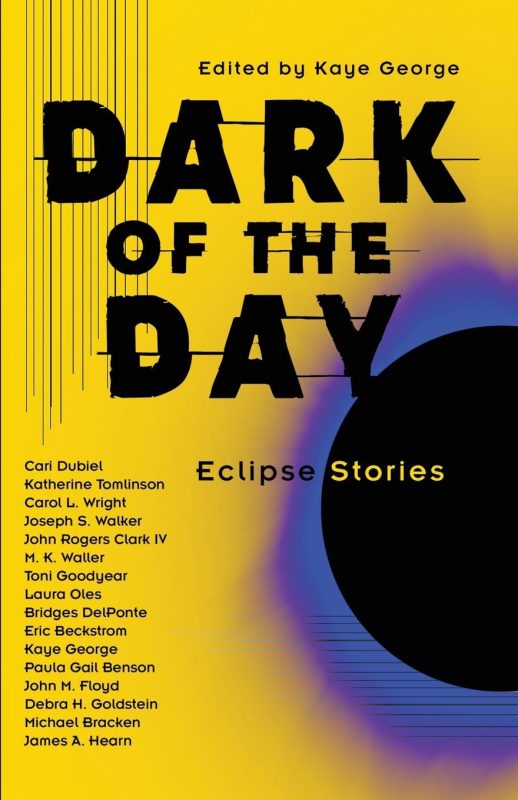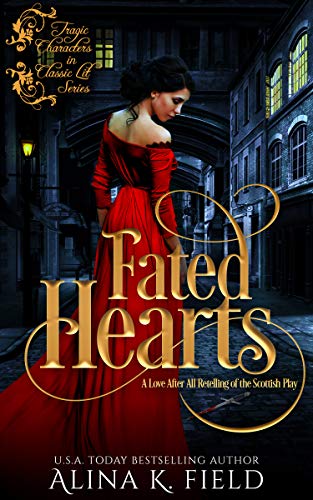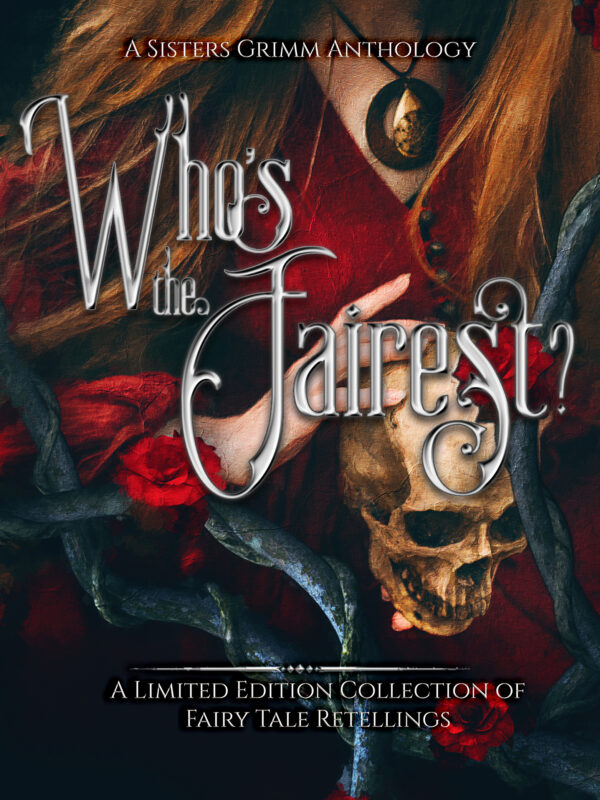Well Acquainted by Laney Hatcher & Smartypants Romance New Release
October 27, 2022 by marianne h donley in category Apples & Oranges by Marianne H. Donley, Spotlight
Well Acquainted, an all-new swoony second chance historical romance from Laney Hatcher, is LIVE in Kindle Unlimited!
There are three things you need to know about Lady Eliza Morgan:
1. In addition to being a busy physician, she’s an accomplished seamstress.
2. She’s the victim of a broken heart.
3. The man who shattered it is the one man she can never have.
Some things are better left in the past, but Eliza has spent years running from hers. When the man who upended her life re-enters it in the most unexpected way, Eliza must decide if reacquainting herself with Nicolas is worth the heartache. He’s charming and irritating and makes her realize there is so much more than the life she’s been living. But first she must confront her painful past if she and Nicolas have any hope for a future.

‘Well Acquainted’, a Penny Reid Universe Reimagining, is a full-length historical romance, can be read as a standalone, and is book #2 in the London Ladies Embroidery series, Smartypants Romance Out of this World, Penny Reid Book Universe.
Grab your copy TODAY!
Amazon US: https://amzn.to/3cOZios
Amazon UK: https://amzn.to/3BzbfJ0
Amazon CA: https://amzn.to/3OEmp25
Amazon AU: https://amzn.to/3cPYBeH
Goodreads: https://bit.ly/3A46QeM
Audiobook: Coming this winter!
About Laney Hatcher
Laney Hatcher is a firm believer that there is a spreadsheet for every occasion and pie is always the answer. She is an author of stories that have a past, in a language of love that’s universal. Often too practical for her own good, Laney enjoys her life in the southern United States with her husband, children, and an incredibly entitled cat.
Find Laney online
Facebook: https://bit.ly/3HkhbFE
Instagram: https://www.instagram.com/laney.hatcher/
TikTok: https://bit.ly/3CwREcY
Website: https://laneyhatcher.com/
Goodreads: https://bit.ly/3EHkQeN
Pinterest: https://bit.ly/32G5BG8
Amazon: https://www.amazon.com/author/laneyhatcher
Connect with Smartypants Romance
Facebook: http://bit.ly/2kvDnb4
Twitter: http://bit.ly/2lzyduO
Amazon: https://amzn.to/2lGdIMQ
Instagram: http://bit.ly/2kwKsYK
Website: https://smartypantsromance.com/
Newsletter: https://smartypantsromance.com/newsletter/

Get Me Outta Here!
October 25, 2022 by Kidd Wadsworth in category Infused with Meaning by Kidd Wadsworth tagged as day surgery, fiction, kidd wadsworth, panic, short story
Get Me Outta Here!
by Kidd Wadsworth
We arrive at 6 am. I sign a piece of paper which informs me of the risks of my day procedure using phrases such as “unforeseen side effects, including death.” A plastic bracelet is secured around my wrist. Promptly at 7 am, I kiss my husband goodbye and follow a stern-looking nurse through a side door. She points me to a changing room.
“Nothing on underneath. Only the gown.”
I obey.
She takes my clothes, my shoes, my underwear. I am left barefoot in a nearly see-through gown I hold shut in the back with a tight grip on the gaping cloth.
“Lay down.” She points to a narrow bed on rollers.
Again, I obey.
Three seconds later, I have a tube in my arm. Another nurse takes my blood pressure and my pulse. “Did you have anything to eat in the last twenty-four hours?”
“No.”
“Are you sure?”
“Yes.”
“No cereal, no fruit, no bread, no banana . . . “The list continues. On and on.
“No.”
“If you’ve had something to eat, I need to know.”
“No, I have not had anything to eat.” Does she think I’m lying?
“This form says that I’ve asked you if you’ve had anything to eat and you’ve said, no. Sign here.”
I sign.
Too late, I realize I didn’t read the form. As she walks away, I almost call her back, but that’s stupid—isn’t it? I mean, why am I so nervous? This is just day surgery.
They wheel me away down a hallway, into an elevator, and then into a room crowded with people. Surely this can’t be correct? This is minor surgery. What are all these people doing here? I count fourteen. Really? Fourteen?
Two nurses or doctors—let’s just call them people in scrubs and masks—strap me down to the table.
Why straps? Do they expect me to try to make a run for it?
“Just relax,” one of the people who had strapped me to the table says.
Does he really think the phrase, “Just relax,” makes people relax? I think unstrapping me might make me relax.
Above me lights, so many lights, perhaps fifteen or twenty, glow brightly, each one with a shiny metal hat to direct the beam. Moving my head slightly from side to side, I intently examine the fixture. Something’s wrong, but I can’t quite put my finger on it. Then I realize that although the fixture is polished and highly reflective, I can’t see my reflection on any surface. Someone has deliberately designed the fixture so that I, the patient, cannot see myself strapped down to the operating table.
My heart pounds in my chest.
I gasp for breath.
Calm down. It’s only day surgery. This probably isn’t a horror movie. Surely, they aren’t going to harvest my organs and sell them overseas or implant an alien fetus in my uterus.
Yet, there is something about those lights, as if no one wants me to realize what a precarious position I’m in. Precarious? No, helpless! And the masks? Of course, they are wearing masks. That way I can’t identify them in a police lineup when I finally manage to escape and notify the authorities.
As every instinct in my body screams, “Get out! Get out now!” the nurse/doctor/whatever who had strapped me down, injects something into my IV.
I want to shout, “No!” But I don’t. Afterall, what can I do? I AM STRAPPED TO THE TABLE!
“Count backwards from a hundred,” he says.
I try to control my shaking. “One hundred.” I am so obedient. Why am I so freaking obedient?
“Please keep counting.”
“Ninety-nine . . .”
I’m an educated, adult woman. Why did I allow someone to strap me, nearly naked, to an operating table in a room full of strangers?
Strangers?
My doctor? Where is my doctor? Am I in the right room? What if there’s been some clerical error?
I realize I never read the name on my bracelet.
What if they think I’m someone else? What if they amputate my leg or remove my brain!
I lift my head, straining to see the thin slip of plastic. I can’t quite . . .
I wake in recovery. Home by super. The operation is a complete success.
Nope, never going back.

Kidd Wadsworth is the author of the high fantasy novel: “The Death of Magic” which you can read for free by clicking here: https://www.scribblehub.com/series/588059/the-death-of-magic/
So You Think You’re Ready for an Author Assistant
October 23, 2022 by marianne h donley in category Ages 2 Perfection Online Class, Online Classes tagged as Age to Perfection Online Class, Author Assistants, Sara Benedict
Presented by: Sara Benedict
Date: November 12, 2022
9AM PT/10AM MT/11AM CT/12 Noon ET
Pricing: A2P Member fee: FREE
Non-A2P Member fee: $10
About the Workshop:
Author Assistants can make or break an author just as easily as a poorly designed cover or a badly written blurb. This forum style workshop will guide you through the potential highs and lows of hiring an author assistant. But most importantly, will leave you with the answers to the three most often asked questions:
- What does an author assistant do?
- Do I need an author assistant?
- How do I find an author assistant?
About the Presenter:
Sara Benedict is an Author Assistant that works with clients in every stage of authordom, from those working on their first manuscript to NYT Best Sellers. Sara lives in upstate New York with her husband, two children, and two chocolate labs. She has a borderline unhealthy obsession with all things relevant to Irish folklore, Gilmore Girls, and 16th century Britain. Oh, and in her spare time can be found either in a kayak or anywhere in the woods. She holds BA degrees in both English and history, has a profound love of nature, and a deep passion for books.
Artistic Expression and Why it Matters by Veronica Jorge
October 22, 2022 by Veronica Jorge in category Write From the Heart by Veronica Jorge tagged as artists
“Picture it. Sicily….” Most of us will recognize that memorable line with which the outspoken Sophia Petrillo, portrayed by Estelle Getty in the television sitcom, The Golden Girls prefaced her words of wisdom and advice.
And what movie goer can ever forget Marlon Brando’s husky voice in the Godfather as the Italian patriarch Don Vito Corleone? “I’ll make him an offer he can’t refuse.”
Charlton Heston will forever be etched in the mind as Moses parting the red sea in Cecil B. DeMille’s, The Ten Commandments.
And in my estimation, Omar Sharif’s interpretation of the apostle Peter in the movie of the same name was superb.
All of these portrayed ethnicities and faiths other than their own. And we loved it.
So, I don’t understand the current trend that considers telling a story other than your own taboo because it means you are appropriating another’s culture.
The world of literature has made important contributions to our knowledge of and understanding of other peoples and cultures. For example: Japanese born Kazuo Ishiguro’s novel, The Remains of the Day, allowed us a glimpse into a stately English home through the eyes of a British butler. Arthur Golden took us into the world and emotions of Japanese geisha women in his novel, Memoirs of a Geisha. The white journalist and novelist, John Howard Griffin medically colored his skin to pen, Black Like Me, a novel that made us feel the terror of being black in the deep South. Pearl S. Buck, an advocate of cross-cultural understanding and racial harmony, left a legacy of philanthropy and literature that includes her portraits of China in the novels, The Good Earth and Peony. And, I Claudius, by the British novelist Robert Graves, written as an autobiography, revealed the mind and nature of a Roman emperor.
Let’s be honest, whether it’s a hairstylist, auto mechanic, doctor, technician, or politician, we want the person who can best do the job. We evaluate them according to their experience, competence, and track record, not by their race, color or creed.
Why should the arts be any different? For the price of theatre tickets today, I want to get my money’s worth with the best performance. When I purchase a book, I want captivating writing that merits it a place of honor on my shelf.
Actors and writers research the world and times of the individuals they portray and write about. They enlighten us on issues we may be unaware of. They speak for the voiceless and reveal the invisible people we often pass on the street every day and ignore. The characters they bring to life illuminate events and sometimes horrific stories that need to be told. We begin to understand the challenges that motivate people’s actions and choices. We feel their anguish, hopes and dreams that are often our own as well. Via the actor’s and writer’s skillful character studies and world building, we meet believable individuals that we will never forget, and that we enjoy seeing and reading about over and over again. Their work is often the catalyst that spurs us to act and make changes which result in a better life for all of us.
Whether you read Gone With the Wind by Margaret Mitchell or, The Wind Done Gone by Alice Randall, both offer valuable insights and perspectives for understanding the people and the times.
Based on today’s standards, many of the wonderful novels that we consider literary classics would have never been written, and some of the movies we make a tradition of watching each year would have never been made.
The following quote from the 1895 poem, ‘Judge Softly or Walk a Mile in His Moccasins’ by Mary T. Lathrap (1838-1895) summarizes the importance of artistic expression.
“ Just for a moment, slip into his mind and traditions and see the world through his spirit and eyes…”
One might say that the empathy in acting and writing, its ability to help us understand and share the feelings of another, is essential for creating and participating in a just and safe society.
The only requirement that makes such magic possible is unfettered and uncensored artistic expression.
I hope that actors, writers, and all artists will continue unhindered to depict significant works of art that capture moments in time, help us understand the world around us, show us who we are, and inspire us to be kinder and more compassionate towards one another.
Veronica Jorge
See you next time on November 22nd!
October Featured Author: Denise M. Colby
October 21, 2022 by Denise M. Colby in category Apples & Oranges by Marianne H. Donley, Featured Author of the Month tagged as Christian Historical Fiction, Denise M Colby, Marketing, Social Media, writing
Denise M. Colby loves to write words that encourage, enrich, and engage whether it’s in her blog, social media, magazine articles, or devotions. With over 20+ years’ experience in marketing, she enjoys using her skills to help other authors.

She treasures the written word and the messages that can be conveyed when certain words are strung together. An avid journal writer, she usually can be found with a pen and notepad whenever she’s reading God’s word. Denise is writing her first novel, a Christian Historical Romance and can be found at www.denisemcolby.com
She’s a member of RWA, OCC/RWA, Faith, Hope & Love Chapter of RWA, ACFW (where she is a semi-finalist in the Genesis contest Historical Romance Category), OC Chapter of ACFW, and SoCal Christian Writers’ Conference.
In addition to Denise’s column The Writing Journey on A Slice of Orange, you can read some of her magazine article here.
Denise M. Colby’s Books
Affiliate Links
A Slice of Orange is an affiliate with some of the booksellers listed on this website, including Barnes & Nobel, Books A Million, iBooks, Kobo, and Smashwords. This means A Slice of Orange may earn a small advertising fee from sales made through the links used on this website. There are reminders of these affiliate links on the pages for individual books.
Search A Slice of Orange
Find a Column
Archives
Featured Books
FATED HEARTS: A Love After All Retelling of the Scottish Play
Everything he’d believed to be true was a lie.
More info →
THE ALLIANCE
When Leora Ebersole sees the small plane crash in her Old Order Mennonite community, she has no idea it's a foreshadowing of things to come.
More info →Newsletter
Contributing Authors
Search A Slice of Orange
Find a Column
Archives
Authors in the Bookstore
- A. E. Decker
- A. J. Scudiere
- A.J. Sidransky
- Abby Collette
- Alanna Lucus
- Albert Marrin
- Alice Duncan
- Alina K. Field
- Alison Green Myers
- Andi Lawrencovna
- Andrew C Raiford
- Angela Pryce
- Aviva Vaughn
- Barbara Ankrum
- Bethlehem Writers Group, LLC
- Carol L. Wright
- Celeste Barclay
- Christina Alexandra
- Christopher D. Ochs
- Claire Davon
- Claire Naden
- Courtnee Turner Hoyle
- Courtney Annicchiarico
- D. Lieber
- Daniel V. Meier Jr.
- Debra Dixon
- Debra H. Goldstein
- Debra Holland
- Dee Ann Palmer
- Denise M. Colby
- Diane Benefiel
- Diane Sismour
- Dianna Sinovic
- DT Krippene
- E.B. Dawson
- Emilie Dallaire
- Emily Brightwell
- Emily PW Murphy
- Fae Rowen
- Faith L. Justice
- Frances Amati
- Geralyn Corcillo
- Glynnis Campbell
- Greg Jolley
- H. O. Charles
- Jaclyn Roché
- Jacqueline Diamond
- Janet Lynn and Will Zeilinger
- Jaya Mehta
- Jeff Baird
- Jenna Barwin
- Jenne Kern
- Jennifer D. Bokal
- Jennifer Lyon
- Jerome W. McFadden
- Jill Piscitello
- Jina Bacarr
- Jo A. Hiestand
- Jodi Bogert
- Jolina Petersheim
- Jonathan Maberry
- Joy Allyson
- Judy Duarte
- Justin Murphy
- Justine Davis
- Kat Martin
- Kidd Wadsworth
- Kitty Bucholtz
- Kristy Tate
- Larry Deibert
- Larry Hamilton
- Laura Drake
- Laurie Stevens
- Leslie Knowles
- Li-Ying Lundquist
- Linda Carroll-Bradd
- Linda Lappin
- Linda McLaughlin
- Linda O. Johnston
- Lisa Preston
- Lolo Paige
- Loran Holt
- Lyssa Kay Adams
- Madeline Ash
- Margarita Engle
- Marguerite Quantaine
- Marianne H. Donley
- Mary Castillo
- Maureen Klovers
- Megan Haskell
- Melanie Waterbury
- Melisa Rivero
- Melissa Chambers
- Melodie Winawer
- Meriam Wilhelm
- Mikel J. Wilson
- Mindy Neff
- Monica McCabe
- Nancy Brashear
- Neetu Malik
- Nikki Prince
- Once Upon Anthologies
- Paula Gail Benson
- Penny Reid
- Peter Barbour
- Priscilla Oliveras
- R. H. Kohno
- Rachel Hailey
- Ralph Hieb
- Ramcy Diek
- Ransom Stephens
- Rebecca Forster
- Renae Wrich
- Roxy Matthews
- Ryder Hunte Clancy
- Sally Paradysz
- Sheila Colón-Bagley
- Simone de Muñoz
- Sophie Barnes
- Susan Lynn Meyer
- Susan Squires
- T. D. Fox
- Tara C. Allred
- Tara Lain
- Tari Lynn Jewett
- Terri Osburn
- Tracy Reed
- Vera Jane Cook
- Vicki Crum
- Writing Something Romantic
Affiliate Links
A Slice of Orange is an affiliate with some of the booksellers listed on this website, including Barnes & Nobel, Books A Million, iBooks, Kobo, and Smashwords. This means A Slice of Orange may earn a small advertising fee from sales made through the links used on this website. There are reminders of these affiliate links on the pages for individual books.













































